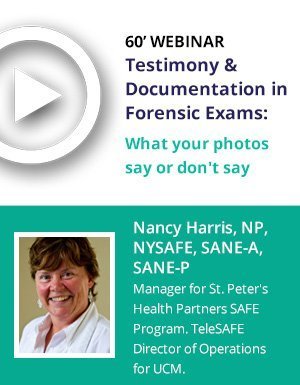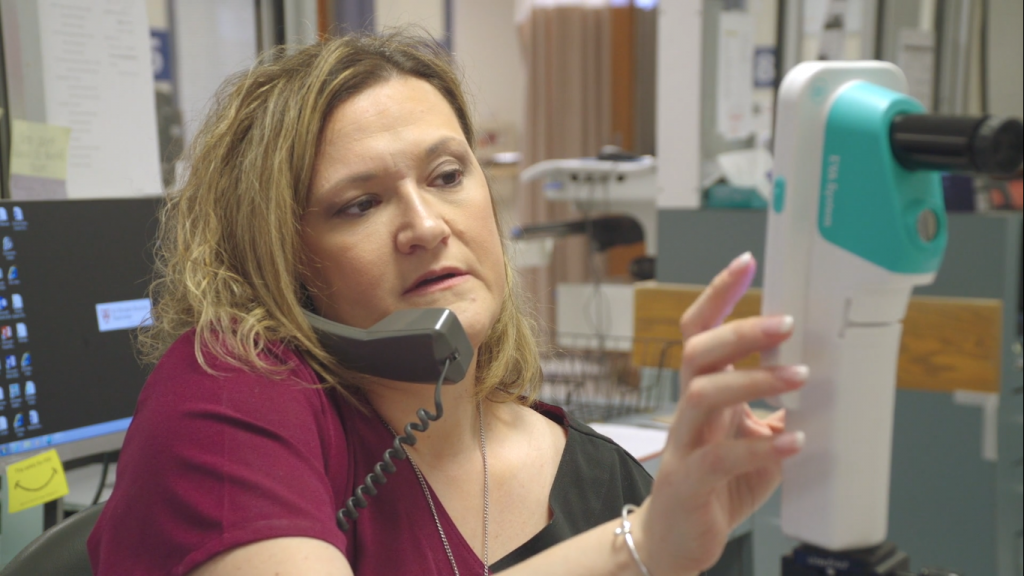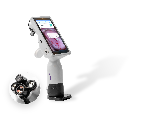
Counties across America try their best to ensure that a certified sexual assault nurse examiner (SANE) is available when a victim of a sexual assault needs a forensic exam. Many hospitals and sexual assault forensic centers are making sure nursing teams have the right training and availability to provide a kit at any time, day or night. But it can pose a significant challenge to provide SANE exams in rural areas. In addition to lacking SANEs, many rural and underserved communities may also lack access to hospitals or medical care due to limited resources. How can new technology help to overcome this challenge?
Which factors contribute to the difficulty in providing forensic exams for survivors in rural areas?
Many healthcare facilities simply don’t have the money to send people for training. Even with adequate funding available to complete a SANE course, many hospitals worry about employee turnover and investing the time and resources for a staff member that may eventually leave. Furthermore, it can be hard to justify the costs and training to maintain a SANE or SAFE program in areas with lower rates of reported sexual assault. The cost alone of supporting a fully operational program is estimated at $80,000 annually.
Even when hospitals and communities can invest in training and SAFE programs, getting practical experience to perform forensic exams and keeping in line with best practices poses a unique challenge. With a less densely populated rural area, there may be fewer reported assaults.
 Nancy Harris, NP, SANE-A, SANE-P, and current program manager of St. Peter’s SAFE program in Albany, New York, notes that many qualified SANEs “don’t feel competent when it comes time to perform a forensic exam. When such few numbers of sexual assault patients come in, they may only do one exam here and there. It can sometimes be a year or two between exams and a SANE may not feel competent without the right practice. There is a feeling of just not knowing what to do next.”
Nancy Harris, NP, SANE-A, SANE-P, and current program manager of St. Peter’s SAFE program in Albany, New York, notes that many qualified SANEs “don’t feel competent when it comes time to perform a forensic exam. When such few numbers of sexual assault patients come in, they may only do one exam here and there. It can sometimes be a year or two between exams and a SANE may not feel competent without the right practice. There is a feeling of just not knowing what to do next.”
SANEs also face the added pressure of knowing that, whatever they do or don’t do in an exam, may be subject to investigation by law enforcement which may require testimony in court.
Any healthcare system or community should prioritize the needs of sexual assault survivors, however, limitations exist – especially for the staff of rural emergency rooms. In order for a SAFE program to be implemented, hospital policies need to be written, documentation tools and forensic kits need to be readily available, and someone must oversee all of these facilities. Hospital personnel in rural areas have limited resources. Nancy Harris remarks, “At one location, the director of the ER was also the evening supervisor and in charge of IT.”
Many rural hospitals transfer patients needing SANE exams elsewhere
Under such overwhelming circumstances, rural hospitals may find it easier to transfer a patient who has been sexually assaulted to another location where they may receive better treatment. However, Harris notes that this can have a severely negative impact on the patient to continue with reporting or treatment:
“While the hospital may find it easier to transfer someone, they don’t understand what this may do to a survivor. They may leave feeling I was not believed at this location, why will I be believed at the next one? If the patient is taking the time to get to that facility, we need to do everything possible to give that patient service.”
In addition to the psychological impact that being shuffled from one place to another can have on a survivor, it is critical to keep in mind the physical implications and that time is of the essence in sexual assault cases. Some rural locations may have to call in a SANE from an hour away. In order to try and preserve any evidence, patients cannot eat, drink, or even use the restroom. There is a big concern to get patients prophylactic contraception, antibiotics against STIs and HIV medication if needed within the time frame that will make it most effective.
How medical teleconsultation can help address the service gaps in rural communities
The right tools can address the challenges of providing care to sexual assault victims in rural areas. The EVA System for SANE is a secure documentation device for streamlining sexual assault exams to visualize and capture images of the cervix, vagina, and other areas of injury across the body. More than just a visualization tool, the EVA System has digital capabilities for peer review and telemedicine that can bridge the gap between training, gaining competence, and getting survivors the services they need more quickly.
Via a direct video link-up on the EVA System, a less experienced SANE at the point-of-care collaborates with one who has greater experience from virtually anywhere. With both SANEs able to visualize the patient at the same time, the EVA System’s teleconsultation feature allows the expert to be in the background, ready to assist in real-time.

According to Harris, “Everyone questions themselves, no matter the experience. Everyone second guesses themselves. It’s nice to know that you can review with someone to make sure everything you did was correct.”
Having an expert on the line can have great benefits for SANEs at all different levels, from someone who has never opened an exam kit to a certified person who hasn’t done a case in months to make sure they have followed protocol and haven’t forgotten something.
Teleconsultation for SANEs can also address the lack of resources that many urban areas face as well. Harris recalls, “When I started to look at rural locations and the larger issues trying to find SANE nurses, a lot of time the same issues occur in large cities. There may be a larger pool of people, but the same issues for the comfort level, time, and if the facility will put the money into the program exist.”
Improved care for survivors and professional support for SANEs
Through the collaborative capabilities of teleconsultation, patients can receive a higher quality of care without having to wait or travel extensively. Several survivors who have been part of a specialized teleSANE program with UCM said they felt reassured knowing an expert was guiding the SANE that was in the room with them. Teleconsultation also has the ability to reduce wait times for survivors and get them the treatment they need more quickly.
With SANE teleconsultation, SANEs can feel supported and confident that they provide the right level of care, especially when a case may be called to trial.
Harris, who is also the Director of Operations for UCM’s TeleSAFE program, notes,
“The big issue is that we try to make sure that the nurse in the room with the patient can feel confident knowing we are in the room to assist but to let them know they are the primary nurse and we are here to help.”
When SANEs feel that they can support one another through teleconsultation, they can have a higher rate of job satisfaction, reduce burnout, and ensure they are giving the highest quality of care to survivors of sexual assault wherever they are.







